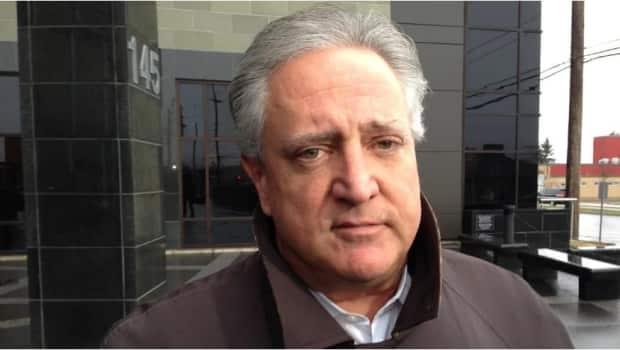N.B. Appeal Court rebukes RCMP officer for conduct in impaired driving case
A New Brunswick RCMP officer committed serious, charter-infringing misconduct by denying a man arrested for impaired driving access to a lawyer, a court decision states.
The case involved Pier-Paul Landry, who was convicted of impaired driving, but was initially denied access to a lawyer by the investigating officer on the 2017 case. Landry was acquitted on appeal of the conviction.
The decision names RCMP Const. Kalbarczyk as the investigating officer but does not include his first name.
The Crown sought leave to appeal the acquittal, leading to the New Brunswick Court of Appeal decision issued Thursday.
Justice Charles LeBlond, who wrote the decision on behalf of the three-judge panel, upheld the acquittal.
"[T]he facts of this case expose the police officer's usual practice which prevented Mr. Landry from availing himself of his right to retain and instruct counsel at the scene of his arrest, despite the Supreme Court of Canada's explicit and well-known instructions to that effect, dating back more than thirty-three years, which have been reiterated in several decisions of this Court," LeBlond wrote.
He added that his hope is that the "clear signal" the appeal court sent in a previous ruling regarding access to a lawyer, and "reiterates in these reasons will be clearly understood."

According to the decision, Landry was stopped at 2:48 a.m. on Dec. 2, 2017, in Inkerman Ferry, a community northeast of Tracadie-Sheila.
Kalbarczyk detected alcohol on Landry's breath.
Landry admitted he had been drinking. He failed a roadside screening test around 3:10 a.m., leading the officer to arrest him.
The decision says Kalbarczyk advised Landry of his rights, which include the right to retain and instruct legal counsel without delay. Landry told the officer he had a lawyer and wanted to speak with him immediately.
However, Kalbarczyk refused to allow him to do so until at a police station, which LeBlond wrote was the first breach of Landry's rights.
I cannot conceive that the RCMP, with all its resources and means of communicating with its members, would not have alerted its members about how they should conduct themselves - Justice Charles LeBlond
"[T]he case law could not be clearer on the issue of when an accused is entitled to avail himself or herself of his or her right to counsel," LeBlond wrote.
"The right applies immediately following arrest and reading of constitutional rights, insofar as the circumstances of the case allow. No evidence may be obtained before the right is exercised."
The judge said Kalbarczyk should have let Landry use his cellphone instead of the officer threatening to seize the device.
At the police station, Landry repeatedly tried to call several lawyers without success.
After several more attempts, the officer read Landry what's known as a Prosper warning. It indicates a suspect has changed their mind about contacting legal representation or hasn't clearly responded to the officer about seeking legal representation. It is used before questioning the suspect.
But the warning didn't apply, LeBlond wrote, and Landry wasn't aware of the legal significance of the warning.

Kalbarczyk testified Landry told him, "I do not waive it, but what do you want me to do?"
Instead of allowing Landry to exercise his right within a reasonable time, the decision says the officer told Landry there was nothing more to be done.
Four minutes later, Landry was turned over to another person who collected breath samples to determine his blood alcohol level.
LeBlond described Kalbarczyk's actions as "very serious Charter infringing misconduct."
The officer testified that he followed his usual practice in such circumstances.
"I cannot conceive that the RCMP, with all its resources and means of communicating with its members, would not have alerted its members about how they should conduct themselves, especially in light of the fact that the expected conduct was established by Canada's highest court more than thirty years ago," LeBlond wrote.
Impaired driving is one of the most frequent criminal offences and one of the most common offences heard by criminal courts, according to Statistics Canada.
LeBlond ruled the violations mean evidence of Landry's blood alcohol evidence cannot be used, upholding Landry's acquittal.
Const. Hans Ouellette, a spokesperson for RCMP in New Brunswick, responded to a request for comment about the decision by saying the force "respects the decision of the court."
Coreen Enos, a spokesperson for the Department of Justice and Public Safety, said the decision is being reviewed "to determine its implications" and declined further comment.

 Yahoo Finance
Yahoo Finance 